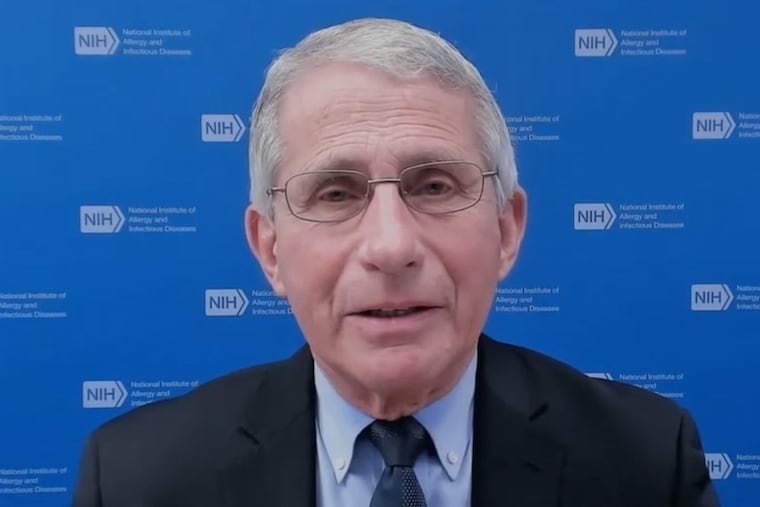Fauci talks Gen Z mental health, COVID-19 vaccines at Penn Medicine event: ‘Be caring and patient in our expectations’
“We know well that adolescents and young adults are among those who have been most deeply affected by this pandemic.”

Anthony Fauci, the nation’s leading infectious diseases expert, spoke Friday at a Penn Medicine event about the effects — both physical and emotional — of COVID-19 on young people and adolescents, highlighting the importance of getting vaccinated. Before Fauci’s short keynote address at the virtual panel event, Penn Medicine’s adolescent and young adult medicine division presented him with its inaugural Humanism in Medicine award for his “incredible, and life-saving leadership,” as well as his commitment to scientific facts during the pandemic.
“America is extraordinarily fortunate to be emerging from the very darkest days of this historic COVID-19 pandemic, through a concerted effort to vaccinate as many people as possible, as quickly as possible,” Fauci said. “This is how we will defeat this pandemic and restore our lives, each of us doing our part by getting vaccinated to protect ourselves, our loved ones, and our communities.”
Fauci also acknowledged how difficult isolation and social distancing have been for adolescents and young people, even though many have been able to avoid serious illness from COVID-19.
“Overcoming the mental trauma caused by this pandemic, resulting from things such as disruptions in education, isolation from friends, grief, anxiety, and depression is critically important,” he said. “Recovering our mental health will be highly individual, and we must all be caring and patient in our expectations.”
Research increasingly shows that the pandemic has taken a serious toll on young people’s mental health. Data released by the Centers for Disease Control and Prevention found that visits to emergency departments for suspected suicide attempts by adolescent girls are up over 50% in the past year and a half, compared to 2019. A study by the CDC also found that the proportion of emergency department visits related to mental health were up 24% for children ages 5 to 11 and 31% for adolescents ages 12 to 17 between last April and October, compared to the same period in 2019.
As summer camps resume and schools open in the fall, teens and families should be aware of the signs of post-traumatic stress disorder (PTSD), said E. Cabrina Campbell, a professor of psychiatry at Penn Medicine and a panelist.
“Gen Zers who have been exposed to unexpected death or threat of death, and then not be able to gather and grieve a loss … you may have nightmares, or feel guilty, or become jumpy and irritable, which can lead to unhealthy coping, such as using substances,” she said. Young people should seek help from their mental health providers “if the symptoms last for more than a month.”
As young people return to school in the fall, they should not feel self-conscious about continuing to wear a mask if they are not vaccinated, Campbell said.
“It is a real reassurance that you are protecting yourself, and you’re protecting others around you,” she said. “As long as someone [around you] is not vaccinated … wearing a mask is not only helpful for yourself, but certainly helpful for everybody around you, because we are all interconnected.”
Fauci and the other panelists continued to stress the importance of young people getting vaccinated when it’s their turn.
Vaccination prevents long-haul COVID-19 symptoms, said Patrick J. Brennan, the chief medical officer and senior vice president at the University of Pennsylvania. While most cases of COVID-19 last for about two weeks with mild to moderate symptoms, some people have experienced lingering health problems such as fatigue, shortness of breath, cough, and chest pain. Plus, heart inflammation and persistent organ damage continue to concern physicians, he said, especially since there is not yet conclusive evidence about how long those symptoms may last.
“The condition can be quite disabling in children and teens,” Brennan said. “And it’s not really clear why some people have long-term COVID-19 symptoms.”
Findings from the latest clinical trials should give researchers enough information to vaccinate children of all ages, Fauci said. An increase in vaccinations by then could help prevent a surge, he said. It’s still unclear when people who are vaccinated will need a booster, but Fauci said that related studies are underway.
“It’s within our power to prevent a surge,” Fauci said. “I know people are always worried about a fall or a winter surge … get your population vaccinated and you will not have a surge.”